Discover Top of Mind with Julie Rose
Top of Mind with Julie Rose

Top of Mind with Julie Rose
Author: BYUradio
Subscribed: 279Played: 9,839Subscribe
Share
© 2025 BYU Broadcasting
Description
Tackling tough topics in a way that will help you feel more empathy and empower you to become a better citizen, kinder neighbor, and more effective advocate. For people who are turned off by the divisive nature of the news, but still want to engage with important issues. Hosted by journalist Julie Rose, Top of Mind is a production of BYUradio.
1868 Episodes
Reverse
Americans are having fewer babies than ever before. The fertility rate in the United States has dropped to an all-time low of 1.6 births per woman. In response, the Trump Administration has urged Americans to have more children and proposed a range of pronatalist policies including baby bonuses, an expanded Child Tax Credit and making IVF treatment more affordable. Critics of the Trump Administration worry the underlying intent is to restrict access to contraception and return women to primarily domestic roles.
In this episode of Top of Mind, host Julie Rose explores the complex choices American women face when deciding how many children to have. We’ll dive into the history of fertility trends in the U.S. and take a look at how France managed to sustain a higher fertility rate than most European countries. We’ll also unpack the cultural and political tensions driving the pronatalism debate to discover a bit of common ground in the concept of “reproductive justice.”
GUESTS
Mother and daughter Melody (12 kids), Jaynee (3 kids)
Karen Benjamin Guzzo, professor of sociology, director of the Carolina Population Center at the University of North Carolina at Chapel Hill(https://www.cpc.unc.edu/)
Laurent Toulemon, population researcher at the French Institute for Demographic Studies in Paris (https://www.ined.fr/en/)
Mara Gordon, mother of 1, family physician in Camden, NJ, author of “Your Doctor Friend” on Substack (https://maragordonmd.substack.com/)
Lyman Stone, director of The Pronatalism Initiative at the Institute for Family Studies (https://ifstudies.org/pronatalism-initiative)
Extreme heat kills more Americans most years than hurricanes, floods and tornadoes combined, but we don’t give it the same emergency treatment. The government doesn’t name heatwaves like it does storms. And extreme heat doesn’t qualify for federal disaster funding. But record-breaking temperatures are now a yearly reality across the U.S. Cities are scrambling for solutions—from planting trees to setting up cooling centers—but experts say quick fixes aren’t enough.
In this episode of Top of Mind, host Julie Rose speaks with heat researchers about how policy, planning, and public awareness must evolve to confront rising temperatures. From deadly heatwaves to heightened risks for vulnerable communities, the danger isn’t just about how hot it gets—it’s about how prepared we are to respond.
GUESTS
Larissa Larsen, Professor of Urban and Regional Planning at the University of Michigan (https://taubmancollege.umich.edu/faculty/directory/larissa-larsen/)
Rob Meade, Research Fellow for the Harvard T.H. Chan School of Public Health (https://hsph.harvard.edu/profile/robert-meade/)
Michelle Litwin, Heat Response Program Manager for the Phoenix Office of Heat Response and Mitigation (https://www.phoenix.gov/administration/departments/heat.html)
TIKTOK ACCOUNTS HIGHLIGHTED IN THIS EPISODE:
@Junifrec, @Ascocool, @Mitchellfranxman, @Jenwhite, @Ashley_simone1108, @Hardline_daily, @Jordanjchart, @Stefanies.lifestyle, @Damarypaz, @abbymcduck
CHAPTERS
00:00 Introduction
00:43 The Growing Threat of Heat Waves
02:27 Heat as an Emergency
04:43 Historical Heatwave Impact
06:07 Urban Planning and Heat Resilience
17:42 The Human Body's Response to Extreme Heat
23:55 Behavioral & Physiological Responses to Heat
26:11 Cooling Strategies
28:25 Phoenix's Heat Response Initiatives
31:02 Challenges & Solutions in Phoenix
39:08 Data-Driven Heat Mitigation
40:25 Conclusion
How is the balance of power supposed to work when a U.S. President aggressively pushes for more? In his first 100 days of his second term, President Donald Trump issued more executive orders than any president in history, and the Supreme Court has largely let them stand while legal challenges play out. Whether that troubles you depends largely on how you feel about the President and his policies. But within four years, someone else will hold that office and may wield the same power toward different priorities.
In this episode of Top of Mind, host Julie Rose explores the origins of “checks and balances” in American government, including the surprising history of how the Supreme Court became “supreme.” We hear from a conservative legal scholar who worked for the George W. Bush Administration and thinks America benefits when Presidents push the limits of their power and Congress pushes back. Then we’ll explore why some Americans believe their local “Constitutional Sheriff”—not federal officials—is the ultimate authority in their community.
GUESTS
Timothy Johnson, Professor of Political Science and Law, University of Minnesota (https://www.trjumn.com/)
John Yoo, Professor of Law, UC Berkeley; Distinguished Fellow, Civitas Institute at the University of Texas at Austin (https://www.law.berkeley.edu/our-faculty/faculty-profiles/john-yoo/)
Richard Mack, Former Sheriff of Graham County, Arizona; Founder of the Constitutional Sheriffs and Peace Officers Association (https://cspoa.org/)
CHAPTERS
0:00 Introduction
3:00 Chapter 1 — Who Made the Supreme Court Supreme? (Timothy Johnson)
18:00 Chapter 2 — How Strong is Too Strong? (John Yoo)
36:00 Chapter 3 — "The Constitution is King" (Richard Mack)
53:00 Conclusion
Is Housing First a viable solution or just repeating the past? What actually works to end homelessness? Communities across the U.S. have debated and tested solutions, from housing first to human first, permanent supportive housing, transitional housing, and emergency shelters. But Housing First has gained national traction, a strategy that prioritizes permanent housing without conditions, followed up by supportive services.
In this episode of Top of Mind, Julie Rose dives deep into Salt Lake City’s commitment to the Housing First approach, which launched two decades ago, making it one of the first cities in the country to fully embrace this model. Nearly two decades later, Salt Lake City serves as a revealing case study for the successes, challenges, and evolving nature of efforts to solve homelessness in America.
GUESTS
Tyler Clancy, Utah State Representative
Michelle Flynn, Executive Director of The Road Home since 2020 (https://theroadhome.org/).
Dave Durocher, Executive Director of The Other Side Academy (https://www.theothersideacademy.com/).
Amy Daeschel, Director of Outreach, Clinical Intake & SSP at the Odyssey House of Utah (https://www.odysseyhouse.org/).
Robbie Myrick, Director of Human First Culture at The Other Side Village (https://theothersidevillage.com/about-the-village/)
CHAPTERS
00:00 Introduction
00:42 Utah's Housing First Success Story
01:37 Challenges and Criticisms of Housing First
02:14 Permanent Supportive Housing
07:21 The Magnolia Apartments: A New Approach
19:21 Policy Shifts and Legislative Actions
28:19 Personal Stories and Impact
30:52 A Turning Point: Accepting Treatment
31:18 The Journey to Recovery
32:15 The Other Side Academy: A Unique Approach
33:36 Jared Campbell's Story
34:50 Life at The Other Side Academy
42:22 The Other Side Village: A New Beginning
50:36 Reflections and Conclusion
It’s easier than ever to connect with our representatives in Congress, so why doesn’t it feel like they’re listening?
The 1st Amendment guarantees the right to “petition the government for a redress of grievances.” Given how frustrated Americans are with the job Congress is doing, how secure is that right in 2025?
In this episode, we talk with two members of Congress (a Republican and a Democrat) about how they are handling angry town hall meetings and increasing volume of calls and emails from constituents. What’s the best way to influence their positions on issues? We also unpack the history of our right to petition the government and why members of Congress added constituent services to their duties in the 1970s. A former Congressional staffer offers advice on how to influence elected officials, and an Iowa mom explains how she’s become an effective advocate for issues she cares about.
Guests:
John Curtis, US Senate (R-Utah)
Chrissy Houlahan, US House (D-Pennsylvania 6th District)
Ben Schneer, professor of public policy at the Harvard Kennedy School
Bradford Fitch, former CEO of the Congressional Management Foundation (https://www.congressfoundation.org/), author of “Citizens Handbook to Influencing Elected Officials”
Tiffany Welch, volunteer advocate with Save the Children Action Network in Iowa (https://savethechildrenactionnetwork.org/)
CHAPTERS
00:00 Introduction
00:43 Challenges of Town Hall Meetings
03:21 Senator Curtis's New Approach to Town Halls
06:50 Balancing Diverse Constituencies
08:23 Impact of Constituent Feedback on Policy
11:56 Representative Chrissy Houlahan's Approach
16:26 Petitioning the Government
20:06 The Role of Petitions in History
22:52 The Decline of Traditional Petitioning
23:40 Modern Ways to Air Grievances
25:40 Constituent Services: A New Avenue
27:24 The Evolution of Congressional Staff
28:33 Influencing Congress
31:13 A Personal Journey in Advocacy
Smartphones have become an essential part of daily life, but should they have a place in the classroom? Half of U.S. states have recently passed laws restricting or banning phones in schools, igniting a passionate national debate.
Some parents say phones are vital for student safety and emotional regulation. Others argue they’re fueling a mental health crisis and stifling face-to-face connection. Students are caught in the middle, and teachers are left to enforce policies that vary widely from school to school. How do we balance safety, learning, and connection for students in a world where phones are always within reach?
Guests:
Sabine Polak, co-founder of the Phone Free Schools Movement (https://phonefreeschoolsmovement.org/)
Keri Rodrigues, president of the National Parents Union (https://nationalparentsunion.org/)
Richard Culatta, CEO of the International Society for Technology and Education and author of Digital for Good: Raising Kids to Thrive in an Online World (https://iste.org/)
Anna Clayton, high school student in Utah (https://www.sltrib.com/opinion/commentary/2025/02/14/voices-i-want-my-fellow-young/)
Doug Welton, Utah Republican State Representative
Nina, high school teacher
CHAPTERS
00:00 Introduction
01:51 Student Perspective
04:56 Utah's Phone Ban Bill
07:23 Parental Concerns
09:33 The Phone Free Schools Movement
15:16 The National Parents Union's Stance
22:58 Teacher's Perspective
26:29 Challenges and Concerns with Phone Bans
29:12 Positive Approaches to Technology Use in Schools
30:46 Implementing Effective Technology Norms
37:48 Promoting Safe and Positive Device Use
40:08 Final Thoughts
For over 150 years, the U.S. has granted automatic citizenship to babies born on American soil, a principle rooted in the 14th Amendment and seen by many as key to equality and opportunity. But most countries don’t follow jus soli (“right of soil”), granting citizenship instead by bloodline. Critics, including President Donald Trump, argue birthright citizenship encourages illegal immigration and birth tourism, cheapening the value of citizenship.
In this episode, legal scholars and policy experts weigh in on what the 14th Amendment guarantees and what remains open to interpretation. We also meet people whose lives have been shaped by birthright citizenship: a newly naturalized citizen, an undocumented mother, and someone born a U.S. citizen who no longer wants that status.
Guests
Rogers Smith, political scientist and author of Citizenship Without Consent (www.live-sas-www-polisci.pantheon.sas.upenn.edu/people/standing-faculty/rogers-smith)
Abdi Soltani, Executive Director, ACLU of Northern California (www.aclunc.org/staff/abdi-soltani-hehim)
Lora Ries, Director, Border Security & Immigration Center, The Heritage Foundation (www.heritage.org/staff/lora-ries)
Christian, writer and undocumented mother of five U.S.-citizen children (www.lacuenta.substack.com/)
Daniel Burciaga, recently naturalized U.S. citizen
Jessica Burciaga, U.S. citizen by birthright
Kate Panova, journalist, founder of UAWelcome (www.uawelcome.org/)
Fabien Lehagre, founder of L'Association des Américains Accidentels (www.americains-accidentels.fr/)
Credit: Audio of Sen. Lindsey Graham from NBC’s Meet the Press, Jan. 26, 2025
Chapters
00:00 Intro
00:58 Naturalization
03:37 History
05:09 Trump’s EO
06:33 Critics’ Views
09:32 Real Impacts
18:43 Birth Tourism
27:51 Accidental American
32:17 14th Amendment
41:24 Modern Takes
51:58 Final Thoughts
Alcohol is a deeply embedded part of American life—woven into celebrations, identity, and social norms. But from health warnings to sober-curious trends, new questions are surfacing about what we drink, how much, and why.
In this episode of Top of Mind, we explore how cultural attitudes toward alcohol have evolved and why more people today are rethinking what it means to drink responsibly. We also look at the science behind alcohol’s health impacts and the history of how it became so normalized in the first place.
What do these shifting perspectives mean for the future of drinking in America?
Guests:
Sarah Levy, author of Drinking Games (https://www.sarahllevy.com/)
Lisa Jacobson, history professor at UC Santa Barbara and author of Intoxicating Pleasures: The Reinvention of Wine, Beer, and Whiskey after Prohibition (https://www.ucpress.edu/books/intoxicating-pleasures/paper)
Dr. Tim Naimi, physician and director of the University of Victoria’s Canadian Institute for Substance Use Research (https://www.uvic.ca/research/centres/cisur/about/scientists/profiles/naimi-tim.php)
CHAPTERS
00:00 Introduction
00:56 Sarah Levy's Alcohol Story
02:38 The Cultural Shift in Alcohol Consumption
08:54 The Decision to Quit and Finding Support
14:42 Prohibition and Its Aftermath
27:14 Distilled Spirits During Wartime
28:42 Whiskey's Cultural Transformation Post-WWII
31:36 The Rise of Responsible Drinking Campaigns
33:58 Modern Perspectives on Alcohol and Health
36:01 The Science Behind Alcohol Consumption
School integration in America is widely viewed as a civil rights milestone— but decades later, U.S. schools are as segregated as they were in the 1970s. So, in this episode of Top of Mind, we look at the complicated legacy of school integration in America: who it helped, who it hurt, and what struggling schools need to thrive.
Dr. Noliwe Rooks shares her family’s four-generation story with integration, highlighting both its benefits and its lasting harms. We also visit schools in Oakland and Florida that show how communities can support student success—even in segregated settings. What does real educational equity look like? And what lessons have we missed about integration’s impact?
Guests:
Noliwe Rooks, L. Herbert Balou Professor of Africana Studies at Brown University and author of Integrated: How American Schools Failed Black Children (https://www.noliwerooks.org/)
Roma Groves-Waters, principal of MLK Jr. Elementary in Oakland, California
(https://mlk.ousd.org/)
Kamryn Young, Evans High alum and development director for Children’s Home Society of Florida (https://chsfl.org/)
Andry Sweet, CEO of Children’s Home Society of Florida (https://chsfl.org/leadership-blog/andry-sweet-president-ceo/)
Audio excerpted with permission of Penguin Random House Audio from INTEGRATED by Noliwe Rooks, read by the author. © Noliwe Rooks ℗ 2025 Penguin Random House, LLC. All rights reserved.
Get the audio book here: https://www.penguinrandomhouse.com/books/721962/integrated-by-noliwe-rooks/audio/
CHAPTERS
00:00 Introduction
00:42 The Untold Story of School Integration
03:02 Integration & Black Educators
04:08 Segregation in Schools Now
08:49 Rooks' Journey & Family History
18:15 Challenges of Integration for Black Students
22:09 The War on Poverty
26:11 Life as an Integrator
30:09 Jelani's Middle School Experience
33:59 Navigating Racial Dynamics in Education
35:43 Community Schools as a Solution
45:43 Evans High School Transformation
52:22 Conclusion
Credit card debt is at an all-time high in America. Half of all Americans with a credit card have carried a balance in the past year, and one in three have more credit card debt than emergency savings. And with interest rates soaring, that debt is becoming even more expensive.
It’s easy to see credit card debt as a personal failing, caused by overspending. While that’s often true, nearly a third of U.S. credit card holders say they use their cards to cover essentials like rent, food, or medical bills. That complicates the narrative. Credit card debt might be a burden—but access to credit can also be a lifeline.
On this episode of Top of Mind:
- How should we think about credit card debt in America?
- How much personal responsibility do we bear?
- What are the risks of making credit card debt “cheaper”?
- How can consumers navigate a system designed to promote debt?
Guests:
Jamie Feldman, journalist and co-host of the Debt Heads podcast (https://debtheadspodcast.com/)
Elena Botella, author of Delinquent: Inside America’s Debt Machine (https://elenabotella.com/books)
Tris, credit card user
Nicholas Anthony, policy analyst at the Cato Institute’s Center for Monetary and Financial Alternatives (https://www.cato.org/people/nicholas-anthony)
Matt Schulz, Chief Consumer Finance Analyst at LendingTree and author of Ask Questions, Save Money, Make More (https://www.mattschulz.com/book/)
Michael Reynolds, certified financial planner and owner of Elevation Financial (https://www.elevationfinancial.com/about)
CHAPTERS
00:00 Introduction
00:48 Jamie's Debt Journey
03:35 The Reality of Credit Card Debt in America
09:23 Elena Botella's Insider Perspective
15:16 The Evolution of Consumer Credit
25:13 Tris' Story: Overcoming Financial Hurdles
26:25 Using Credit Cards Responsibly
28:18 Rebuilding Credit Scores
29:52 Debate and Impact: Interest Rate Caps
37:03 Tips for Managing Credit Card Debt
46:45 The Debt Snowball Method
48:49 Credit Card Rewards and Spending Habits
52:18 Conclusion
In 2017, the US and a coalition of more than 80 countries ran ISIS out of its strongholds, killed the group's top leaders, and declared victory.
But that wasn't the end.
Instead, ISIS reinvented itself as an even greater threat to the United States homeland—and did so more successfully than any other foreign terror group. National security experts now say a 9/11-style attack is no longer the main worry. It's "domestic terrorism" by "lone-wolf" attackers radicalized online to murder their fellow Americans.
On this episode, we consider how ISIS has revised the radicalization playbook to become "the easiest club in the world to join," as one expert describes. We'll hear how groups embracing other extremist ideologies – including white supremacy, male supremacy and anti-government sentiment - are using that same playbook. And we'll get concrete advice on how to prevent radicalization in young people.
Guests:
Christianne Boudreau, Co-founder of “Mothers for Life” and “Hope Regained” (https://www.hoperegained.com/)
Joby Warrick, national security reporter for the Washington Post (https://www.washingtonpost.com/people/joby-warrick/), author of Black Flags: The Rise of ISIS (https://www.penguinrandomhouse.com/books/233775/black-flags-by-joby-warrick/)
Cynthia Miller-Idriss, professor at American University, founding director of the Polarization and Extremism Research and Innovation Lab (PERIL https://perilresearch.com/)
Americans reported reading 12 books on average in 2022. That’s the lowest number since Gallup started polling on this in the 90s. Survey data from 2023 show nearly half of US adults didn't read—or listen to—even one book that year. It's no wonder; book reading has to compete with endless news feeds, social media sites, streaming services, and even podcasts for free time. Teachers are starting to worry about this. College professors report their incoming freshman seem unable to stick with long, complicated texts. At the high school level, teachers are taking novels off their curriculum entirely, sticking to excerpts and movie-versions of the classics.
Book reading in the digital age is more convenient than ever. You can listen to an audiobook in places you would never read a physical book—when you're driving, for example, or doing the dishes. And just one e-reader can store thousands of books, which makes reading more transportable and accessible. But even the ease of modern tech hasn't reversed the overall decline. And it begs new questions: do our brains interact with a screen the same way they interact with a paper page? And does listening to a book really count as reading it? Americans are consuming fewer books than ever. Does that matter in 2025?
Guests:
Della Cassia, freelance writer (https://www.dellacassia.com/)
Victoria Waller, educational therapist and author of Yes! Your Child Can: Creating Success for Children with Learning Differences (https://www.drvictoriawaller.com/the-book)
Jonathan Malesic, writer and professor at Southern Methodist University (https://www.nytimes.com/2024/10/25/opinion/college-university-students-reading.html?unlocked_article_code=1.U04.5KzJ.G2qOw1rujKCq&smid=url-share)
Anna White, avid audiobook reader
Naomi Baron, professor emerita of linguistics at American University and author of How We Read Now: Strategic Choices for Print, Screen, and Audio (https://www.amazon.com/How-We-Read-Now-Strategic/dp/019008409X) and Who Wrote This? How AI and the Lure of Efficie
The current state of education in America is a troubling picture. Reading proficiency scores have reached historic lows. Chronic absenteeism is on the rise—more than a quarter of K-12 students miss at least 10% of the school year. And the achievement gap in test scores between the highest and lowest performing students has widened. On this podcast episode, we take a closer look at education reform in America. Would more students show up to school if they were learning material that felt applicable to their goals in life - instead of being funneled through a cookie-cutter system designed for the industrial era? How would a focus on increasing background knowledge, known as knowledge-building curriculum, help students develop their understanding of core subjects better than our current model of skills-based instruction? And how might school choice policies—like open enrollment, charter schools, and magnet schools—address rising levels of school segregation? Could racial and socioeconomic integration be the key to closing America’s persistent achievement gaps on standardized test scores?
Guests:
Cory Steiner, Superintendent of Schools for Northern Cass School District: https://www.northerncassschool.org/page/personalized-learning
Jenee Henry Wood, Chief Learning Officer at Transcend and co-author of Extraordinary Learning for All: How Communities Design Schools Where Everyone Thrives: https://transcendeducation.org/resources/extraordinary-learning-for-all/
Russ Williams, Executive Director of Center City Public Schools in Washington, D.C.: https://centercitypcs.org/about/meet-our-team/#biokellydickens
Kate Merrill, Managing Director of Curriculum and Instruction, Center City Public Schools in Washington, D.C.
Halley Potter, Senior Fellow and Director of PK-12 Education Policy at The Century Foundation: https://tcf.org/experts/halley-potter/
Milly Arbaje-Thomas, President & CEO of METCO (The Metropolitan Council for Educational Opportunity) in Boston: https://metcoinc.org/about/
More Top of Mind epi
More Americans use cannabis every day, or almost every day, than use alcohol on a daily basis. That's in large part because marijuana is a lot more accessible than it used to be. More than half of us live in a state where marijuana is recreationally legal. Nearly 8 in 10 live in a county with a marijuana dispensary.
But marijuana is still illegal in the eyes of the federal government, which means legalization is being managed almost entirely by a patchwork of state policies. Doctors and scientists are starting to worry about what that means for public health. Is marijuana legalization working out like we thought it would? And where do we go from here?
Guests:
Amber Post, realtor from Owasso, Oklahoma
Yasmin Hurd, Director of the Addiction Institute at Icahn School of Medicine at Mount Sinai New York (https://www.nationalacademies.org/news/2024/09/to-protect-public-health-federal-government-should-provide-guidance-to-states-that-have-legalized-marijuana-close-hemp-regulatory-loopholes-create-public-health-campaign)
Jonathan Caulkins, Professor of Operations Research and Public Policy at Carnegie Mellon University’s Heinz College (https://onlinelibrary.wiley.com/doi/full/10.1111/add.16519)
00:00 Introduction and Personal Story
01:31 Amber Post's Marijuana Journey
02:43 Health Issues and Discovery
05:20 Legalization and Public Perception
11:13 Medical and Scientific Insights
15:31 Cannabinoids and Their Effects
23:49 Policy and Future Outlook
25:15 The Impact of Potent Cannabis Products on Youth
26:00 The Role of Policy and Regulation in Cannabis Safety
26:51 The Need for FDA Regulation in Cannabis Products
28:21 Concerns About Vulnerable Populations
30:02 The Evolution of Cannabis Legalization in the U.S.
32:59 The Rise of Daily Cannabis Use
36:06 Challenges in Regulating Cannabis Products
43:57 The Future of Cannabis Legalization and Regulation
52:35 Personal Reflections on Medical Marijuana
53:26 Closing Remarks and Additional Resources
They started off as ideological enemies.
Mark Rosenberg pioneered the public health approach to preventing gun violence and opened a branch of the CDC to fund that research. Jay Dickey, the "NRA's point man in Congress", pushed a ban on CDC funding for gun violence research that lasted 20 years – and got Rosenberg fired. On this episode of Top of Mind, we tell the unlikely story of their friendship and what it can teach us about reducing gun violence in America.
Americans are split right down the middle on whether it's more important to control gun ownership or protect the right to own guns. But we agree that too many people die from firearms. They are the leading cause of death for children under the age of 19 in the United States today. Mass shootings are so common they barely capture headlines beyond a day. In 2024, about 40,000 Americans died from gun violence. More than half were suicides.
If Mark Rosenberg and Jay Dickie could come to agree on the need to reduce gun violence, while preserving the rights of law-abiding gun owners, can we do the same?
Podcast Guests:
Mark Rosenberg, MD, public health researcher, former director of the National Center for Injury Prevention and Control (NCPIC at the Centers for Disease Control and Prevention https://www.nejm.org/doi/full/10.1056/NEJM199310073291506)
Jay Dickey, former Republican Congressman from Arkansas, gun rights advocate and sponsor of the “Dickey Amendment” (Dickey died in 2017 https://www.nwaonline.com/obituaries/2017/apr/23/jay-dickey-2017-04-23/. We hear archival tape in this episode)
Betty Dickey, former Arkansas State Supreme Court Justice, Congressman Jay Dickey’s ex-wife
Rachel Dickey Haithcoat, Congressman Jay Dickey’s daughter
Garen Wintemute, MD, emergency medicine physician, director of the Violence Prevention Research Program, University of California at Davis
Bindi Naik-Mathuria, MD, pediatric trauma surgeon, gun violence researcher
It’s been about two years since the public got a taste of ChatGPT for the first time. Now, artificial intelligence has seeped into nearly every aspect of our lives. You can use AI to check your grammar or to generate content for social media. Students use it to write essays. AI can also generate artwork, music or audio in seconds. We’re relying more and more on generative AI tools like MidJourney, DALL-E, Claude, Perplexity, and Copilot—and the more we use it, the better it gets. But can AI really be creative? What does it even mean to be creative in the age of AI?
Guests:
Kate Brunotts, freelance music producer (https://www.breakingsound.com/kate-brunotts)
Jon Cockley, co-founder of the illustration agency, Handsome Frank (https://www.handsomefrank.com/)
Lindsay Brainard, professor of philosophy at the University of Alabama, Birmingham (https://www.lindsaybrainard.com/home)
Claire Silver, AI collaborative artist (https://www.clairesilver.com/selected-work)
Links:
Letter from the Artist Rights Alliance: https://artistrightsnow.medium.com/200-artists-urge-tech-platforms-stop-devaluing-music-559fb109bbac
A 2024 Knight Foundation report found one in four college students think schools need to protect students by banning speech they may find offensive or biased, the largest share of students to answer that way since the survey first asked the question in 2016. 2024 also set a record for the number of attempts to disrupt or disinvite speaker, cancel performances, take down art exhibits and prevent the screening of films on US college campuses, according to the Foundation for Individual Rights and Expression (FIRE). What do these competing interests--to encourage student wellbeing and protect free speech on campus--mean for students and administrators trying to strike a balance?
Guests:
Jillian Lederman, Joseph Rago Memorial Fellow at The Wall Street Journal, 2024 graduate of Brown University ( https://www.nytimes.com/2023/11/03/opinion/antisemitism-jews-campus.html)
Kaleb Bakari Autman, undergraduate student at the University of Wisconsin-Madison
Emma Camp, assistant editor at Reason Magazine, 2022 graduate of the University of Virginia (https://www.nytimes.com/2022/03/07/opinion/campus-speech-cancel-culture.html)
Steve Bahls, president emeritus of Augustana College (retired in 2022), director of Presidential Mission and Vocation for the Council of Independent Colleges
More 1st Amendment episodes from Top of Mind:
Religious freedom: https://www.byuradio.org/top-of-mind-christian-or-not-unpacking-americas-religious-identity
Free Speech: https://www.byuradio.org/d47c4b86-02d4-4a4d-997b-d1510ba9048b/top-of-mind-with-julie-rose-weighing-the-pros-and-cons-of-free-expression
Free Press: https://www.byuradio.org/68e6b06a-73bb-4a0f-ace8-5f2b55bd066f/top-of-mind-with-julie-rose-can-the-news-be-trusted-americans-arent-too-sure
Links:
2024 Knight Foundation Report on Free Expression: https://knightfoundation.org/wp-content/uploads/2024/07/Knight-Fdn_Free-Expression_2024_072424_FINAL-1.pdf
FIRE Databases: https://www.thefire.org/research-learn?_page=1&keywords=&_limit=6&resource_type=1562
In his parting prescription for the country, outgoing US Surgeon General, Doctor Vivek Murthy writes that he is worried about how exhausted and alone Americans are. Public health experts say loneliness has become an epidemic. Research shows social disconnection is about as bad for your health as smoking 15 cigarettes a day, and more harmful than obesity.
But loneliness in America is hardly new. Sociologists like Robert Putnam, author of the groundbreaking book Bowling Alone, have been sounding the alarm for nearly 25 years. In that time, loneliness has only accelerated, with online interaction replacing much of our face-to-face connection. What exactly is lacking for so many people in this country? What is the most useful way to think about this problem? And how can we solve it?
Guests:
Dr. Frank Clark, psychiatrist at Prisma-Health Upstate, clinical associate professor at the University of South Carolina School of Medicine, Greenville ( https://www.psychiatrictimes.com/authors/frank-clark-md)
Matt Fantastic, co-owner of Elm City Games in New Haven, Connecticut (https://www.elmcitygames.com/)
Charlotte Donlon, spiritual director and author of The Great Belonging: How Loneliness Leads Us to Each Other (https://charlottedonlon.com/the-great-belonging-book)
Links:
Dr. Vivek Murthy’s Parting Prescription for America: https://www.hhs.gov/sites/default/files/my-parting-prescription-for-america.pdf
US Surgeon General’s Advisory Report on Loneliness: https://www.hhs.gov/sites/default/files/surgeon-general-social-connection-advisory.pdf
Why is insulting someone’s intelligence such a potent put down? It’s more than saying someone lacks knowledge or book learning. It’s a statement of a person’s worth – of their potential to be successful. And for that, we can thank the IQ test. In this podcast episode, we explore how the IQ test was created and continues to shape our collective understanding of intelligence and disability. We hear from a mother struggling with the pros and cons of having her daughter with Down Syndrome routinely IQ tested at school. A school psychologist tackles common misconceptions about the nature of IQ testing. And we consider how the IQ test’s narrow definition of “intelligence” affects people with dyslexia and autism, which have historically been conflated with intellectual disability.
Guests:
Pepper Stetler, professor of art history, Miami University, author of “A Measure of Intelligence: One Woman’s Reckoning with the IQ Test” (https://www.pepperstetler.com/)
Terisa Gabrielsen, professor of school psychology at Brigham Young University (https://education.byu.edu/directory/view/terisa-gabrielsen)
Quincy Hansen, neurodiversity and autism advocate, author of “Shake It Up: How to be Young, Autistic, and Make an Impact” (https://speakingofautismcom.wordpress.com/)
Tim Odegard, Editor in Chief of the Annals of Dyslexia, professor of psychology at Middle Tennessee State University (https://dyslexia.mtsu.edu/staff/)
More than a quarter of Americans are estranged from at least one family member. Parent/child estrangement is the most common – especially between dads and their kids. There’s a lot about modern American life that has made family estrangement more common, and younger generations are more willing to talk about it on social media. But reconciliation happens more than you might think. On this episode of Top of Mind, we explore the reality of estrangement from both the parent and the child's perspective. And we hear what it takes to reconcile.
Guests:
Charlotte Gill, author of Almost Brown: A Memoir (https://www.penguinrandomhouse.com/books/705633/almost-brown-by-charlotte-gill/)
Sheri McGregor, author of Done with the Crying and Beyond Done with the Crying (https://a.co/d/93JwJ4C)
Joshua Coleman, clinical psychologist and author of The Rules of Estrangement: Why Adult Children Cut Ties and How to Heal the Conflict (https://www.penguinrandomhouse.com/books/622584/rules-of-estrangement-by-joshua-coleman-phd/)



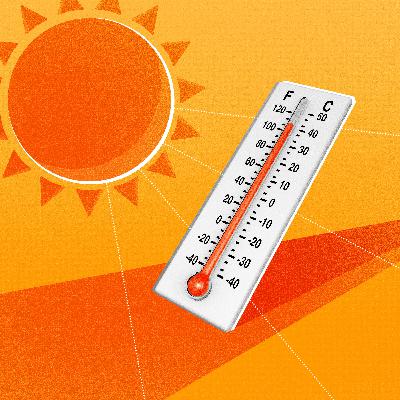
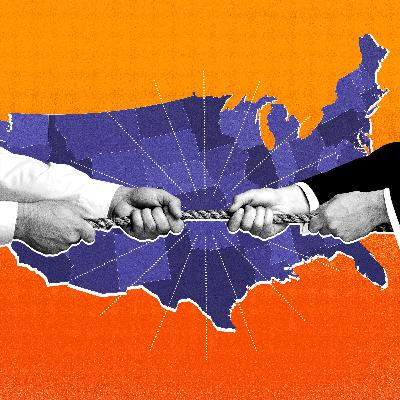

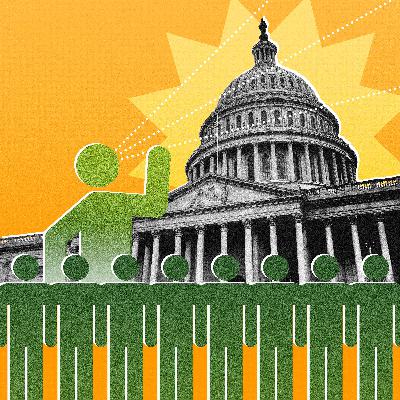
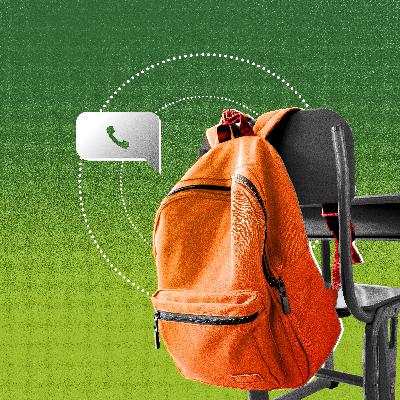
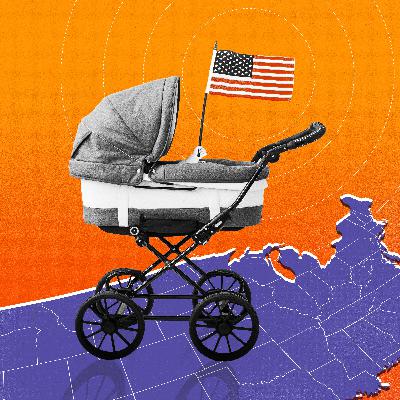




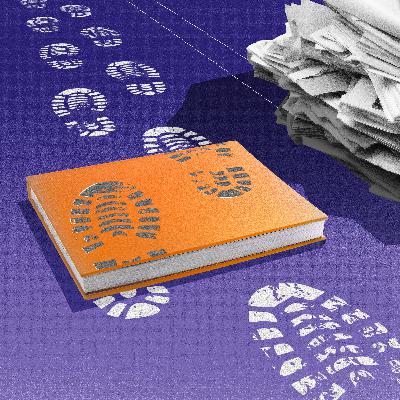
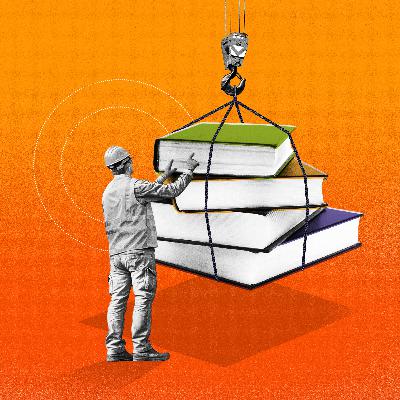
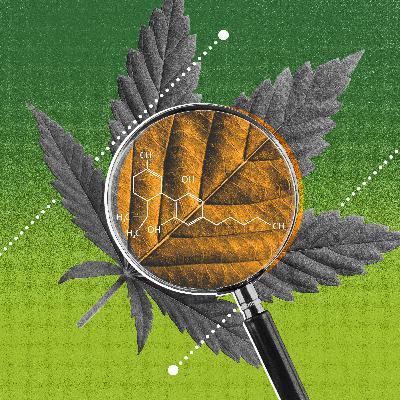


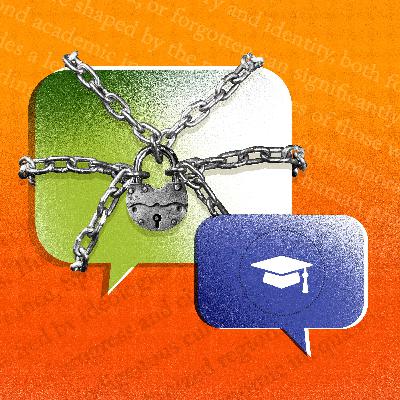
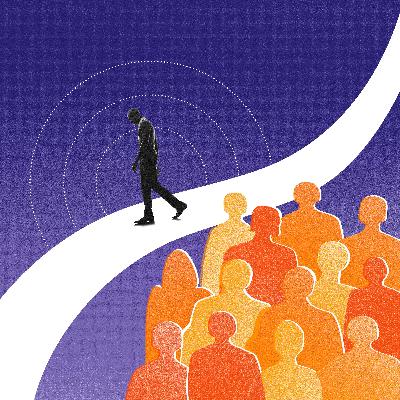





Excellent. Thanks for covering this topic. Very well done and informative.
Awesome! Science is proving something I knew from personal experience. Playing D&D is good for my mental health. 😁
I'm glad Julie could go out and report for the momentos ocation
Hmm, middle school teachers are very stressed. Well, that might be because they deal with middle schoolers every day at work. I remember being in middle school, it was a snake pit. Hormones, peer pressure, bullies, social hierarchy. Thankfully for me the internet was a novelty at the time, not platform for more social nonsense or I might have gone deeper into the depression I went into during my middle school years. I applaud people brave enough to be middle school teachers. They have a tough job.
I can attest to a dog circling back to a place it feels safe. I was at a friend's house when a stray with no collar hung out with us for a few HOURS. Hoping to find the owner or the dog's home, we went on a walk with him (no leash as we didn't have one). WE humans got lost. It was the DOG who brought us back to my friend's house! We asked around to find out more about the dog and got help from a family who lived in the area. We never did find out who the dog belonged to, but he found another home. I just remembered, my friend nicknamed the dog Tacoma, jokingly connecting "the aroma of Tacoma" in reference to the smelly paper processor in that city and the smell of the dog. From his unkempt fur & smell, we guessed he was likely abandoned or long lost.
Building on Mauna Kea is like building on Mecca or the Arlington cemetery or another place sacred in people's minds and culture. Scientists are giving their profession a bad name by pushing this forward. Science is not more important than stepping on a culture AGAIN. There are other observatories already on Mauna Kea.
Not just recognizing different screams, but also laughter. I was visiting a friend when I heard my, then toddler, son laughing with wild abandon. I said "Oh no. That's a bad laugh." My friend gave me strange look. "He sounds happy." But I knew. We found my son throwing handfuls of guinea pig food pellets into the air and laughing. I didn't know why I knew he was getting into trouble with that laugh, but I did.